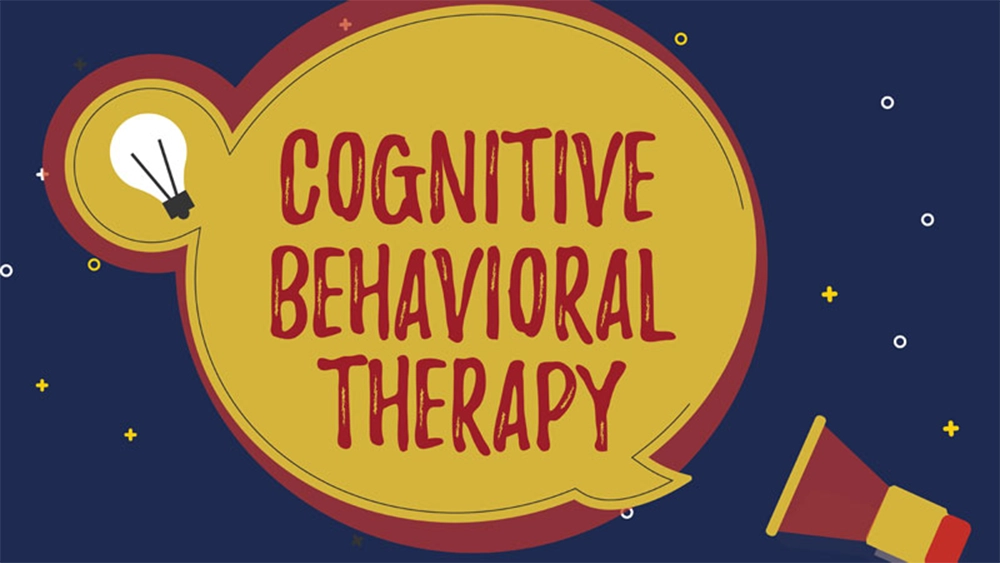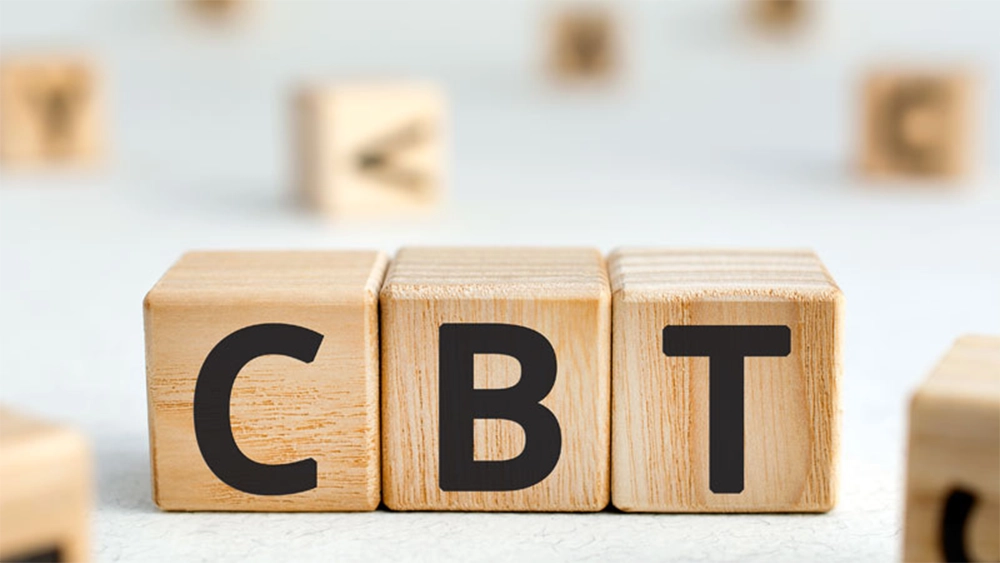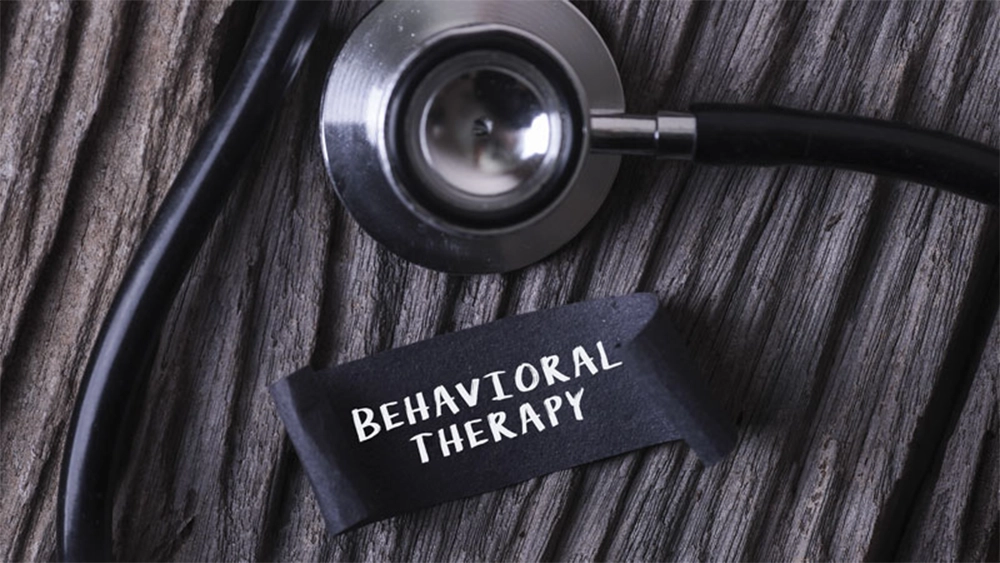Cognitive Behavioural Therapy or CBT is one of the top treatment options for addiction. It is a form of “talk” treatment centred on behavioural, psychological concepts. The focus is on how the actions of individuals can change and how to do it. The cognition concepts that focus on knowing how individuals believe and feel and comprehend themselves are also part of CBT in addiction treatment.
Behaviourism relies on a person’s behaviours or actions, while cognition concentrates on views of people. Examples of these are what they see, hear, their ideas, and their feelings. CBT is a variety of behavioural therapy that centers on altering conduct. It is possible by combining favourable and negative reinforcement or benefits and penalties with activities that the individual intends to boost or reduce.
Understanding Cognitive Behavioral Therapy
In addiction treatment, cognitive behavioural therapy is a top choice today. CBT encourages addicts to heal to discover links between their ideas, emotions, and behaviour. Also, it is to increase consciousness about how these factors impact rehabilitation. CBT also treats co-occurring disorders like anxiety, ADD, bipolar disorder, OCD, eating disorders, and PTSD.
Anxiety
Anxiety disorders shape a category of diagnoses of mental health that contribute to experiencing nervousness, dread, apprehension, and concern. These illnesses change how an individual handles feelings and behaviours, and also cause physical disturbances. Mild anxiety can be ambiguous and unsettling, while severe anxiety can have a severe impact on daily life.
Attention Deficit Disorder
Attention Deficit Disorder (ADD) is a neurological disorder that creates a variety of behavioural issues. It includes having trouble in attending to tasks, concentrating on schoolwork, maintaining with assignments, pursuing guidelines, finishing tasks, and social interaction.
Bipolar Disorder
Formerly known as manic depression, Bipolar Disorder is a condition of mental health that produces severe mood swings. It includes emotional highs such as mania or hypomania and lows like depression. Bipolar disorder can be a critical condition if not treated. It can lead to many problems for individuals suffering from the state.
Obsessive-Compulsive Disorder
Obsessive-compulsive disorder or is a form of an anxiety disorder where people may have recurring and unwanted thoughts or ideas. It may also be sensations or obsessions. These feelings make them feel compelled to do something repeatedly. Repetitive habits such as wiping hands, inspecting stuff and cleaning can considerably disrupt a person’s regular operations and their social interactions.
Eating Disorders
There is a common misconception of eating disorders that is a choice of lifestyle. Eating disorders are severe and often fatal diseases associated with severe disturbances in eating behaviours and related thoughts and emotions of people. Food, body weight, and shape concerns can also signal an eating disorder.
Post-Traumatic Stress Disorder
Post-traumatic stress disorder (PTSD) is a condition of mental health caused by a terrifying event, either experiencing or witnessing it. Warnings may include flashbacks, nightmares, severe anxiety, and the event’s uncontrollable thinking.
Related article: Can Experiential Therapy Help in Addiction Recovery?
How Does Cognitive Behavioral Therapy Work?

Cognitive-behavioural therapists assist recovering addicts to recognize their adverse “instant thoughts.” An automatic thought is focused on impulse and often stems from misunderstandings and internalized emotions of self-doubt and dread.
Often individuals attempt by smoking or abusing drugs to self-medicate these unpleasant ideas and emotions. Recovering addicts can decrease the pain induced by them by continuously revisiting traumatic experiences. They can then teach to substitute their drug or alcohol use with new beneficial habits.
Cognitive Behavioral Therapy For Addiction
Addiction is a clear example of a behaviour pattern that runs counter to what the person it is experiencing wants to do. People who try to overcome addictive behaviours would often say that they want to change those behaviours. They may genuinely want to stop alcohol, drugs, or other compulsive behaviours that cause problems. However, they find it extremely difficult to do so.
According to the concept of cognitive-behavioural treatment, the outcome of incorrect ideas and subsequent adverse emotions are addictive behaviours. It includes consuming alcohol, drug use, gambling problem, compulsive shopping, video game addiction, food addiction and other kinds of damaging excessive behaviour.
Benefits Of Cognitive Behavioral Therapy
Having destructive, negative thinking is common to individuals struggling with substance use disorder. Not recognizing these patterns of thinking is harmful, they are looking for treatment for depression or other external influences. Because cognition affects our well-being, it is essential to change destructive thinking patterns.
CBT is problem-focused and goal-directed. It explores patterns of behaviours that lead to self-destructive actions. It allows patients and therapists to work together in a therapeutic relationship to determine harmful thought patterns. CBT helps clients to generate strategies to handle difficulties following the addiction treatment.
How Is CBT Treatment Used At Rehab Facilities?
A majority of clients treated at rehab facilities have a dual diagnosis or a co-occurring mental health issue. Addressing it is necessary, along with their addiction. Treatment of addiction is often a combination of therapeutic activities that address both of these issues.
CBT is available at rehab facilities. There is an assurance that the sessions will be in an environment conducive to recovery through a compassionate and integrated treatment team. It is so that the treatment is in line with the treatment goals of each client.
How Does Cognitive Behavioral Therapy Affect The Brain?
Several trials have shown that CBT changes the function of the brain. A research released in the General Psychiatry Archives in 2004 stated that CBT modifies the brain’s limbic system, affecting emotion, incentive, and long-term memory. This method of therapy can assist decrease drug addiction issues, including furious outbursts and memory loss.
After only nine sessions of treatments, researchers found a distinction in brain function. The research discovered that CBT also impacts the cortical region of the brain, which relates to attention, perception, and consciousness.
How Effective Is Cognitive Behavioral Therapy?
A 2013 study published in Cognitive Therapy and Research used 269 meta-analyses to measure the effectiveness of CBT. The assessments covered CBT involving various diseases, including personality disorders, psychotic disorders, and disorders of substance use.
The research discovered proof to prove the effectiveness of CBT among addicted people. This strategy to therapy has been very effective in managing the addiction to nicotine and marijuana. However, in managing opioid and alcohol addiction, CBT has been less efficient.
One of the most significant benefits of cognitive-behavioural therapy in comparison to other therapies is its intensive approach and relatively short treatment times. A person typically has five to 20 weeks of weekly sessions, with a total of 10 to 20 sessions. The exact treatment length and session frequency may vary depending on the specific needs and treatment goals.
Does Cognitive Behavioral Therapy Work for Addicts?
Cognitive-behavioural therapy is a form of psychotherapeutic treatment that helps patients comprehend cognitive ideas and emotions. CBT is beneficial in addressing a broad spectrum of illnesses, including phobias, addiction, depression, and anxiety.
In general, cognitive behavioural therapy is short-term and concentrated on assisting individuals to cope with a very particular issue. People learn how to recognize and change destructive or disturbing thought patterns that harm conduct and feelings during therapy.
Cognitive Behavioral Therapy Basics

The underlying idea behind CBT is that our thoughts and emotions play a vital part in our behaviour. For instance, an individual who spends a lot of time thinking about aircraft crashes, runway accidents, and other air disasters may find themselves avoiding air travel.
In the latest years, cognitive behavioural therapy has become progressively familiar with individuals seeking help for their mental health. Since CBT is generally a short-term alternative for treatment, it is often more inexpensive than some other kinds of therapy. CBT is also empirically endorsed and has been demonstrated to assist patients efficiently overcome addictions.
Related article: How is Psychotherapy Used for Addiction Treatment?
Types Of Cognitive Behavioural Therapy
Cognitive psychotherapies are a variety of therapies based on ideas and values derived from psychological models of human emotion and conduct. They include a wide range of therapy methods for emotional disorders, along with a continuum from organized individual psychotherapy to self-help mater.
There are several particular kinds of therapeutic methods involving Cognitive Behavioural Therapy that is used frequently by experts in mental health. Such methods are Rational Emotive Behavior Therapy, Cognitive Therapy, Multimodal Therapy, and Dialectical Behavior Therapy.
Rational Emotive Behavior Therapy
A form of cognitive-behavioural therapy created by psychologist Albert Ellis is rational emotive behaviour therapy, also known as REBT. Rational Emotive Behavior Therapy aims to help customers alter their irrational views.
Cognitive Therapy
Cognitive therapy focuses on present-day thinking, conduct, and communication rather than previous experiences. Its focus is on solving problems. A wide variety of issues, including depression, anxiety, panic, fears, eating disorders, substance abuse, and personality issues use CBT.
Multimodal Therapy
Multimodal therapies are designed to optimize brain disorders treatment by combining different types of treatment. Pharmacotherapy, devices and behavioural/psychosocial interventions function in many different ways.
Dialectical Behavior Therapy
A type of cognitive-behavioural therapy is dialectic behavioural therapy (DBT). Its primary goals are to teach people how to live right now, healthily cope with stress, regulate emotions, and improve relationships with others.
Components Of Cognitive Behavior Therapy
People often experience ideas or emotions that strengthen defective views or compound them. Such convictions can lead to problem behaviours that can influence many fields of life, including family, romantic relationships, work, and academics.
To fight these destructive thoughts and behaviours, a cognitive-behavioural therapist begins by helping the client identify the problematic beliefs. This stage, known as functional analysis, is essential to learn how thoughts, feelings, and situations can contribute to bad behaviour.
The method can be challenging. Particularly for patients struggling with introspection. But it can eventually lead to self-discovery and insights that are an essential component of the therapy process.
The Process Of Cognitive Behavior Therapy
During the process of Cognitive Behavior Therapy, the therapist tends to take a very active role. CBT is highly goal-oriented and focused, but the client and the therapist must work together as collaborators towards a common goal. The therapist will typically explain the process in detail, and the client will often have homework between sessions.
Criticisms Of Cognitive Behavior Therapy
Some patients indicate that recognizing that specific thoughts are not rational or healthy. But merely becoming conscious of these ideas does not make altering them easy. CBT tends not to concentrate on the underlying potential unconscious resistance. It is unlike other methods such as psychoanalytic psychotherapy.
It is essential to note that CBT does not only involve the identification of these patterns of thinking. But it also focuses on using a wide variety of methods to assist customers in overcoming these ideas. These approaches may include journaling, role-playing, techniques for relaxation, and mental distractions.
CBT is unlike other psychoanalytic types of psychotherapy. Different types encourage more open-ended self-exploration. Cognitive behavioural therapy is often best for individuals who are more comfortable with a structured and focused approach in which the therapist often plays an instructive role.
How Does CBT Work As An Addiction Treatment
Supporters of cognitive-behavioural therapy believe you need to change their thoughts first to change the behaviour of a person. In other words, they think that you can increase your health and well-being by merely changing the way you think. And you respond to situations by taking the time to gain insight into your beliefs.
You need to identify the specific set of destructive thought patterns that enabled the addiction cycle to develop and continue in your life. Such negative beliefs sometimes originate from the earliest days of childhood. Thus, they are very engraved in your consciousness.
For some, these patterns of thinking stem from coping skills in adult life that are no longer functional or healthy. By recognizing these mistaken beliefs, you will be empowered to change your present thinking, leave destructive patterns of behaviour in the past, and take steps toward complete and lasting recovery from your addiction.
Related article: Sober Living Benefits
Benefits Of Cognitive Behavior Therapy
CBT is a flexible, adaptable treatment tool used successfully across the globe in addiction programs. It can be used in individual or group therapy settings and is found to be highly effective in treating addictions and addictive behaviours.
Cognitive Behavior Therapy recognizes the past but also points to the future. It means that while your old ways of reasoning are being checked and examined, you will do so to promote beneficial progress in the present. It means implementing the understanding you acquired in your everyday life.
Cognitive-behavioural therapy for a range of psychological issues can be a practical treatment choice. If you feel you could benefit from this form of treatment, consult your doctor and check the directory of certified therapists in your area.
What to Expect from Cognitive Behavioral Therapy Sessions?

A popular form of speech therapy is cognitive-behavioural therapy. You operate in an organized manner, joining a limited amount of meetings, with a behavioural wellness advisor (psychotherapist or psychiatrist). CBT enables you to become conscious of incorrect or adverse thoughts so that you can see and react more effectively to difficult circumstances.
It can be a very effective means, either alone or in combination with other therapies, in treating mental health disorders, such as depression, PTSD, or an eating disorder. But not everybody who benefits from CBT has a condition of mental health. CBT can be an efficient instrument to assist anyone in discovering how to handle stressful family circumstances more effectively.
Why Cognitive Behavioral Therapy Sessions?
A wide variety of problems can benefit from cognitive-behavioural therapy. It is often the preferred form of psychotherapy because it can assist you in defining particular problems rapidly and dealing with them. It usually needs fewer meetings than other treatment kinds and is accomplished in an organized manner.
CBT is a helpful instrument for dealing with mental issues. It helps in managing mental illness signs, preventing mental illness signs from recurring, treating mental illness when medication is not the right choice. It is helpful for you when you’re earning how to cope with stressful family circumstances. It will also be beneficial in identifying methods to handle feelings, resolving family disputes. You can also learn stronger ways to interact.
What Are The Risks?
In particular, cognitive behavioural therapy has little risks. But at times you may feel mentally uneasy. It is because you may be exploring unpleasant feelings, emotions, and interactions with CBT. During a stressful meeting, you may weep, get upset or angry. You might also feel depleted physically.
Some types of CBT, such as exposure treatment, may force you to face circumstances that you prefer to avoid, such as airplanes, if you are afraid of travelling. It may result in transient stress or anxiety. Working with an experienced therapist, however, will minimize any hazards. You can overcome adverse emotions and concerns with the coping skills you study.
How Do You Prepare For Cognitive Behavioral Therapy?
Search for a therapist. You may receive a referral from a physician, health insurance schedule, colleague, or other trusted source. Many companies provide counselling or referral facilities through staff support programs. Or you can discover a therapist on your own, for example, by finding the internet through a local or state psychological organization.
Comprehend the expenses. Find out what coverage it provides for psychotherapy if you have health insurance. Some wellness schemes only contain several therapy sessions per year. Also, discuss charges and billing possibilities with your therapist.
Review the issues you have. Think about what problems you would like to operate on before your first meeting. While this can also be sorted out with your therapist, a starting point may be to have some feelings in advance.
Checking The Psychotherapist’s Qualifications
Check their history and education. Trained psychotherapists, based on their knowledge and position, may have a range of distinct job titles. Most of them have a Master’s or Ph.D. degree with particular psychological counselling practice. Medical doctors (psychiatrists) who have a specialization in mental health may prescribe medicines as well as provide psychotherapy.
Make sure the therapist you choose meets the requirements for state certification and licensing for his or her specific expertise. Ask if the therapist has knowledge and knowledge in dealing with your disease or your regions of interest, such as drinking illnesses or PTSD.
Your First Therapy Session
Your therapist will usually collect information about you during your first session and ask what concerns you would like to focus on. To obtain a deeper understanding of your condition, the therapist will probably tell you about your present and previous physical and emotional health.
Your therapist may talk about whether you could also gain from other treatments, such as medicines. Your doctor may need a few sessions to completely comprehend your condition and issues and determine the most exceptional path of intervention.
During a Cognitive Behavioural Therapy

Your doctor will approach you to discuss your ideas and emotions and what disturbs you. Don’t care if your feelings are painful to close up. Your therapist can assist you to earn more trust and convenience.
The strategy of your therapist will rely on your specific position and opinions. Your doctor may merge Cognitive Behavior Therapy with another therapeutic approach, interpersonal treatment, for instance, focusing on your relationship with others.
Steps In Cognitive Behavioural Therapy
Identifying troubling situations may include issues such as medical condition, divorce, grief, anger, or mental health disorder symptoms. You and your therapist may spend time choosing on the problems and objectives you want to concentrate on.
Identifying adverse or incorrect thoughts can assist you to acknowledge thought habits and behaviours that can add to your issue. Your therapist may invite you to consider your physical, mental and cognitive reactions in distinct circumstances.
Your therapist will probably encourage you to ask yourself if your perception of a scenario relies on reality or incorrect understanding of what is happening. It can be hard at this stage. You may have a long history of wondering about your life and yourself. Helpful thoughts and habits of conduct will become a habit with exercise and will not require as much energy.
Confidentiality Of the Sessions
Conversations with your therapist are secret, except in very particular conditions. A therapist may, however, violate confidentiality if there is an immediate danger to the safety or if state or federal law requires officials to disclose issues.
For everyone, Cognitive Behavioural Therapy is not efficient. But to get the most out of your treatment, you can take steps and assist in making it a success. When you are an active member and participate in decision-making, therapy is most efficient. Make sure that you and your therapist agree on the main problems and how you can address them.
You can put objectives together and evaluate advancement over the moment. If after several sessions you don’t feel you’re benefiting from CBT, talk to your therapist about it. You may decide to make some changes or try another approach with your therapist.
Related article: What is Group Therapy for Drug Addiction Treatment?
How to Find a Therapist for Cognitive Behavioral Therapy?
There is no single cognitive-behaviour therapy term. While most cognitive-behaviour therapists share some prevalent points of perspective, there is a wide variety among those who call themselves cognitive therapists, behavioural therapists, or cognitive-behavioural therapists.
Typically, cognitive behaviour therapy is a short-term, problem-focused treatment based on scientific research. The focus is on the difficulties in the present, although sometimes early life experiences are discussed in understanding these difficulties.
Qualifications And Training Necessary For Health Professionals
A variety of distinct mental health professionals can perform cognitive-behavioural therapy. Competent cognitive-behaviour therapists earn their education in many different fields, and it can sometimes be difficult to distinguish between distinct kinds of mental health professionals.
Therefore, here’s a short overview of the practice obtained by distinct kinds of practitioners offering cognitive behavioural therapy. Keep in mind that during instruction, the emphasis on CBT will differ among the fields mentioned below.
Psychologist
Psychologists have doctoral degrees from the American Psychological Association, and the Canadian Psychological Association endorsed graduate programs. There is also a one-year clinical internship for clinical psychologists, and one to two years of controlled postdoctoral knowledge is usually necessary for a permit.
Clinical Social Workers
In a program accredited by the Council on Social Work Education, a clinical social worker must have a college degree plus at least two years of graduate education. Certified social workers have a master’s or doctoral degree in social work from a program approved by the Social Work Education Council, had two years of experience in social work practice.
Psychiatrists
A psychiatrist must have a degree in medicine. An individual can technically practise psychiatry with four years of medical school and a one-year medical internship. However, most psychiatrists continue their training in psychiatry through a five-year residency program.
Professional Counselors
Professional counsellors generally have master’s degrees from an approved college, expertise, or Ph.D. degrees. Certified counsellors typically have graduate counselling experience, and the National Board of Certified Counselors must have undergone an examination. Procedures for licensing differ from state to state and from province to province.
Questions To Ask When Deciding On A Therapist

The first few sessions will be dedicated by a cognitive-behaviour therapist to assess the extent and causes of the concerns you have. Generally speaking, your therapist will ask very particular answers about the issues or issues that cause you trouble and when and where they happen.
As the evaluation progresses, you can expect to achieve mutually agreeable goals for how you and your therapist want to change. If you are unable to agree on therapy objectives, you should consider finding another therapist.
Training And Qualifications
You should find out if your state is licensed or certified by the individual therapist. If your state or province does not license or certify the person, you may want to ask if another mental health professional oversees the person.
Fees
Many individuals find it unpleasant to ask about charges. However, the fact that a successful therapist will be prepared to offer a prospective client is essential data. The following are economic issues that a therapist may want to address.
Other Questions
There are also other questions that you might want to ask your therapist, for instance, how long would each session last? What is likely to be used by some of the treatment approaches? And are there any limitations on confidentiality?
As The Therapy Proceeds
Once you have chosen the original objectives, you can trust the therapist to discuss one or more methods with you to help you achieve your goals. Many other treatment types do not require session-to-session training, but it is a significant component of CBT. Since CBT is a skill-based treatment, these abilities will need individuals to exercise.
What To Do If You Are Dissatisfied With Your Therapist
So let’s say you’re choosing to get therapy. You find a licensed clinician to work with, set a schedule for regular appointments, and start pouring your heart out to this person who was a stranger until recently.
Talk With Your Therapist
People may sometimes feel upset or dissatisfied with their treatment. If you do, these issues, dissatisfactions, and issues should be in discussion with the therapist. A successful therapist will be accessible to listening to them and talking to you about your discontent.
Get A Second Opinion
If you think that the issues and problems you faced with your therapist do not have solutions, you may want to suggest requesting another specialist for a recommendation. The therapist you see can usually suggest someone you can consult.
Consider Changing Therapist
Many individuals think that changing therapists is never appropriate once treatment has started. Good therapists understand they may not be suitable for any individual. If you don’t feel you’re this therapist, you should check with another therapist.
Takeaway
Therapy can is available from a variety of mental health professionals: psychologists who have specialized training in the study of mind and human behaviour. Counsellors are experts who provide talk therapy but do not diagnose conditions or provide medication. Psychiatrists are doctors who prescribe medication such as antidepressants but are also qualified to advise.
It is difficult to find the right therapist, however, and perhaps an even more significant challenge is trying to decide what kind of therapy you should receive. There are innumerable therapists in psychology, not to mention myriad schools of thought. Contact Addiction Rehab Toronto now!






